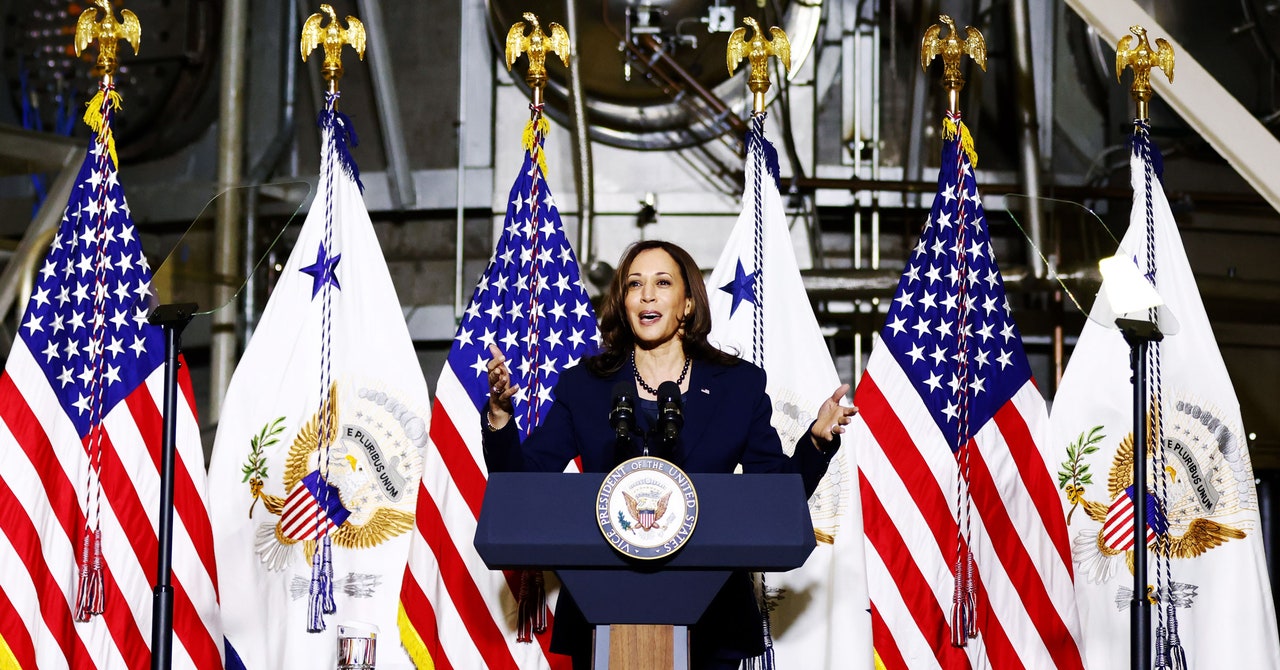
On Wednesday morning, US vice president Kamala Harris led the Biden administration’s inaugural National Space Council meeting, at which she and other political leaders outlined their priorities for the future of civil, commercial, and military space activities. She’s the first woman and first person of color to run such a meeting, which has traditionally been led by the vice president. While Harris has considerable foreign policy experience, this is her first major foray into space politics.
“While our space exploration takes us to the moon, Mars, and the edge of our solar system, I believe we also have the responsibility to look to our home planet,” Harris said at the meeting, which was held at the United States Institute of Peace in Washington, DC, and was streamed online. She was introduced by senator and former astronaut Mark Kelly of Arizona, who said that “space exploration has the incredible capacity to inspire future generations” while citing his own inspiration from “Neil and Buzz.”
The National Space Council is intended to coordinate policies and priorities across numerous government agencies that deal with everything from space observations to launches, communications, and security. Former president George H. W. Bush created the original council in 1989, which was led by his vice president, Dan Quayle. Then the organization was disbanded in 1993. Former president Donald Trump revived the council in 2017, and then-VP Mike Pence headed it for a series of eight meetings. In March, President Biden’s national security advisers announced that the administration would revive the council.
The meeting brought together leaders from more than a dozen federal agencies and included advisers from the space industry and military. In conjunction with the meeting, President Biden signed an executive order adding five new members to the council: the secretaries of education, labor, agriculture, and interior, as well as the national climate adviser. The additions are aimed at ensuring that the benefits of American space activities are applied broadly throughout society, Harris said.
Harris also announced the release of the United States Space Priorities Framework, which outlines the goals of the Biden administration. It appears to maintain support for a number of policies from the previous administration: funding the moon program, known as Artemis; building the Space Force military branch; increasing competition with space rivals China and Russia; investing in science and technology education; continuing support for nonbinding rules or norms that would limit congestion and junk in orbit; and facilitating the growth of the commercial space industry. The framework also identifies “space as critical to modern warfare” and calls for expanding the development of Earth-observing satellites that aid action on climate change.
“Without clear norms for the responsible use of space, we stand the real risk of threats to our national and global security,” Harris said. She referred to Russia’s anti-satellite missile test two weeks ago as an “irresponsible act;” it generated some 1,500 pieces of orbital debris, delaying astronauts aboard the International Space Station from doing a planned spacewalk on Tuesday. The hurtling field of debris generated by that test, and earlier ones by China, the US, and India, have shown that flotsam can remain in orbit and threaten spacecraft for years.


